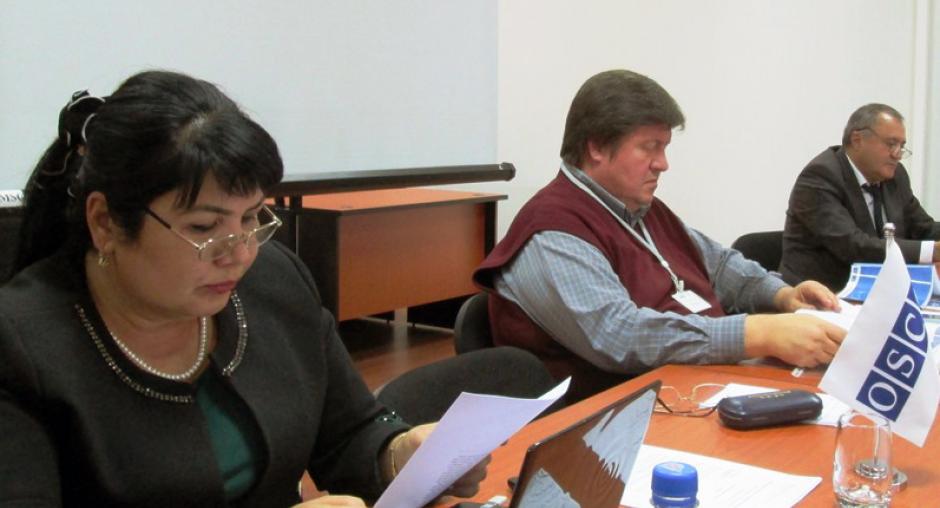OSCE Office in Tajikistan trains judges and journalists on defamation issues

Defamation, libel, hate speech and the presumption of innocence were the focus of a two-day seminar organized by the OSCE Office in Tajikistan and the Council of Justice of the Republic of Tajikistan, which concluded on 27 October 2015 in Dushanbe.
Some 35 judges, lawyers and journalists were introduced to the legal framework governing the freedom of expression and freedom of the media in Tajikistan. National and international experts explained the potential conflict between these freedoms and other rights protected by national law and international conventions.
“By organizing seminars for media professionals and judges the OSCE Office is promoting a continuing dialogue between these two important actors for a democratic society,” said Ewald Orf, Media Officer at the OSCE Office.
Participants discussed and analysed recent national and international court decisions against journalists and media outlets as well as issues like hate speech, state media and the presumption of innocence, and the determination of moral damage in international case law. Alternative mediation mechanisms outside the judicial system were explained by a former chairperson of the Tajik media council, a self-regulatory body established with the support of the OSCE in 2009.
Guidelines for implementing legislation on the protection of individual dignity, honour and professional reputation, and guidelines on public hearings and access to court information were presented by a representative of the Supreme Court of Tajikistan.
Mavjuda Pulodi, the Deputy Head of the Council of Justice in Tajikistan, emphasized the importance of international standards on freedom of the media for Tajikistan and welcomed the practical case studies from Germany, the Russian Federation and Ukraine.
Another two-day seminar gathering 35 regional representatives from the media and judiciary is to be held in Khujand on 29 and 30 October 2015.
